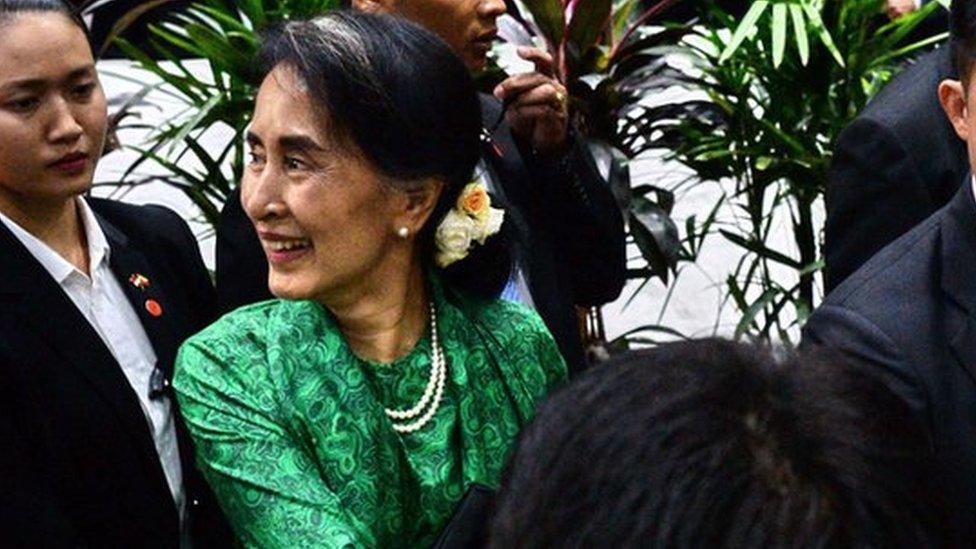UN condemns 'devastating' Rohingya abuse in Myanmar
- Published
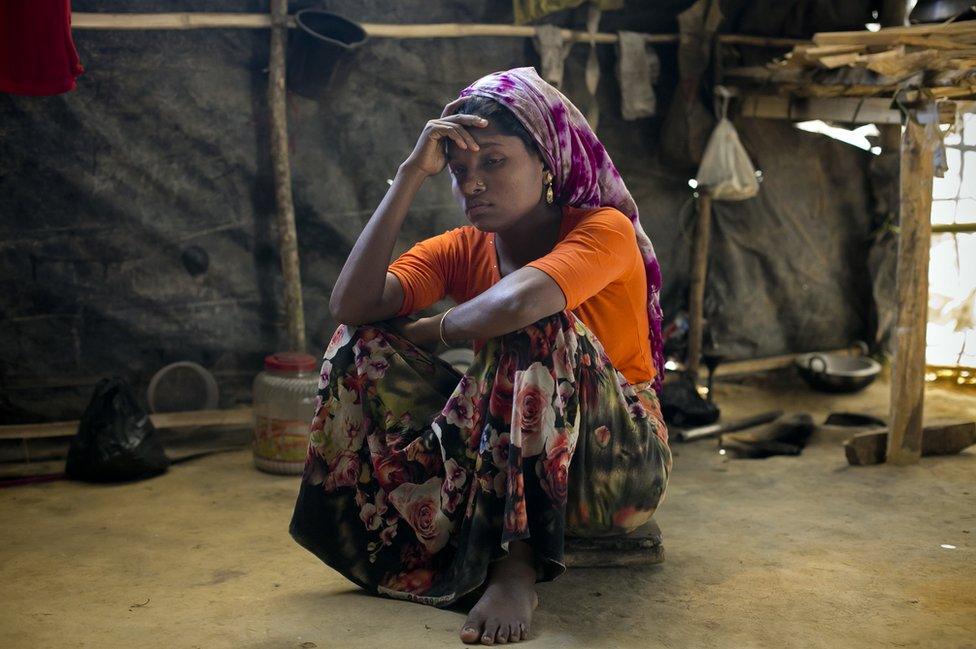
Almost half of the Rohingya interviewed by the UN said a family member had been killed
The UN has accused security forces in Myanmar of committing serious human rights abuses, including gang-rape, savage beatings and child killing.
It made the allegations in a damning report, external compiled after interviews with more than 200 Rohingya refugees who fled from Myanmar to Bangladesh.
One mother recounted how her five-year-old daughter was murdered while trying to protect her from rape.
She said a man "took out a long knife and killed her by slitting her throat".
In another case, an eight-month-old baby was reportedly killed while five security officers gang-raped his mother.
An estimated 65,000 members of the Muslim minority community have fled to Bangladesh since violence broke out in Myanmar - also known as Burma - last October.
Nearly half of those interviewed by the UN said a family member had been killed. Of 101 women interviewed, 52 said they had been raped or experienced sexual violence from the security forces.
Many told investigators that members of the army or police had burned hundreds of Rohingya homes, schools, markets, shops, and mosques.
Numerous testimonies "confirmed that the army deliberately set fire to houses with families inside, and in other cases pushed Rohingyas into already burning houses", the report states.
Many victims said they were taunted as they were being beaten or raped, with the perpetrators telling them: "What can your Allah do for you? See what we can do?"
Rohingya Muslims "hated and hounded from Burmese soil"
UN High Commissioner for Human Rights Zeid Raad Al Hussein said: "The cruelty to which these Rohingya children have been subjected is unbearable - what kind of hatred could make a man stab a baby crying out for his mother's milk?
"I call on the international community, with all its strength, to join me in urging the leadership in Myanmar to bring such military operations to an end."
The country's government and its de facto leader Aung San Suu Kyi have previously dismissed claims of rights abuses and insisted that the security forces follow the rule of law.
However, Ms Suu Kyi's spokesman told the BBC that the latest allegations were extremely serious. The spokesman said officials would look into them immediately.
- Published30 January 2017
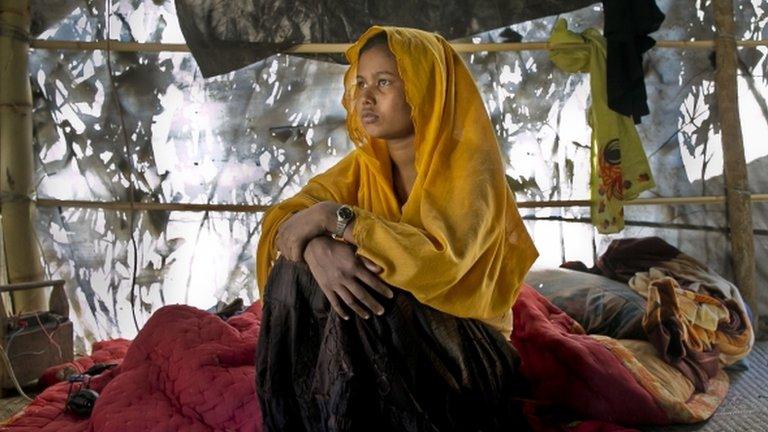
- Published27 January 2017
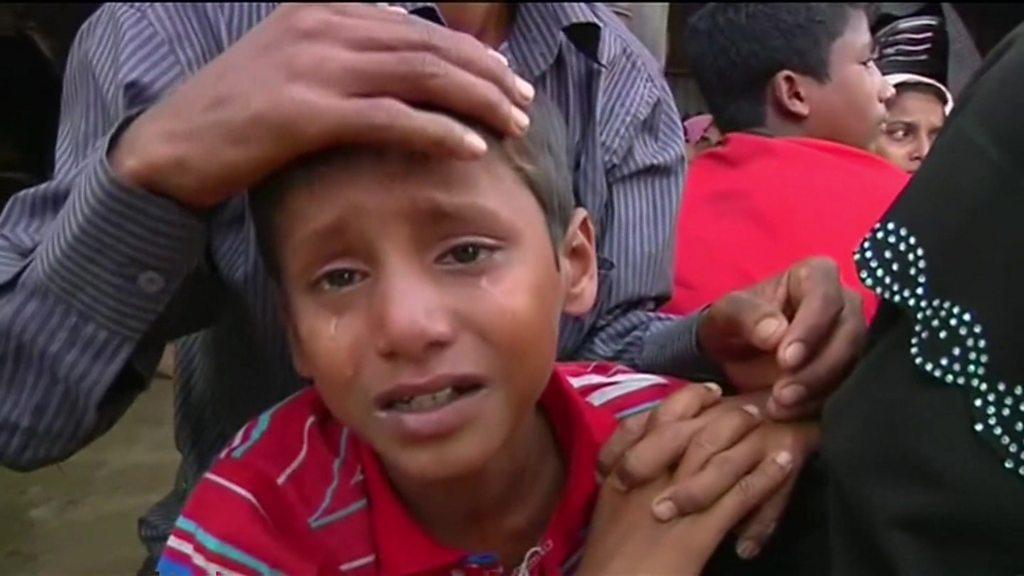
- Published16 December 2016
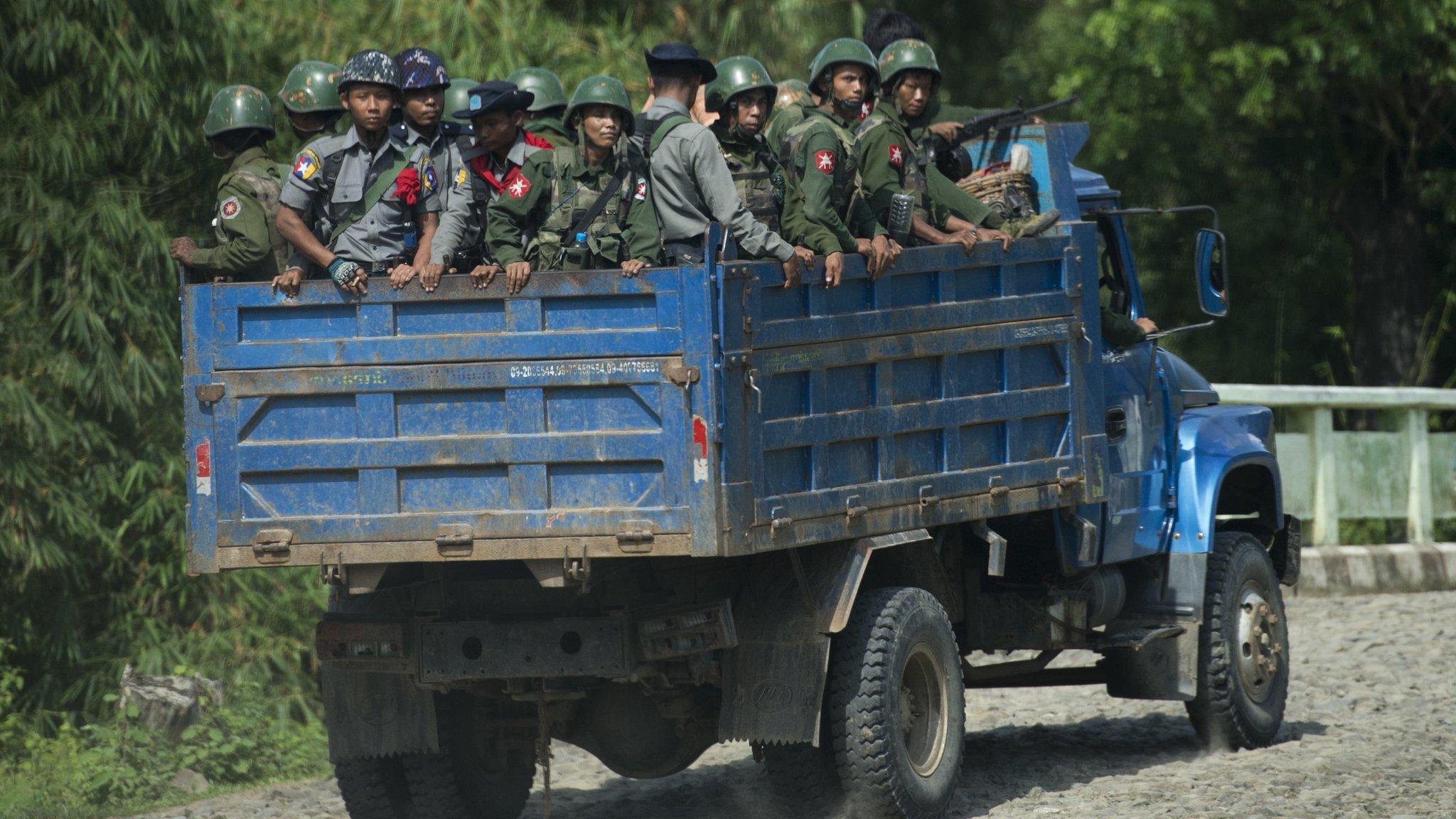
- Published10 January 2017
